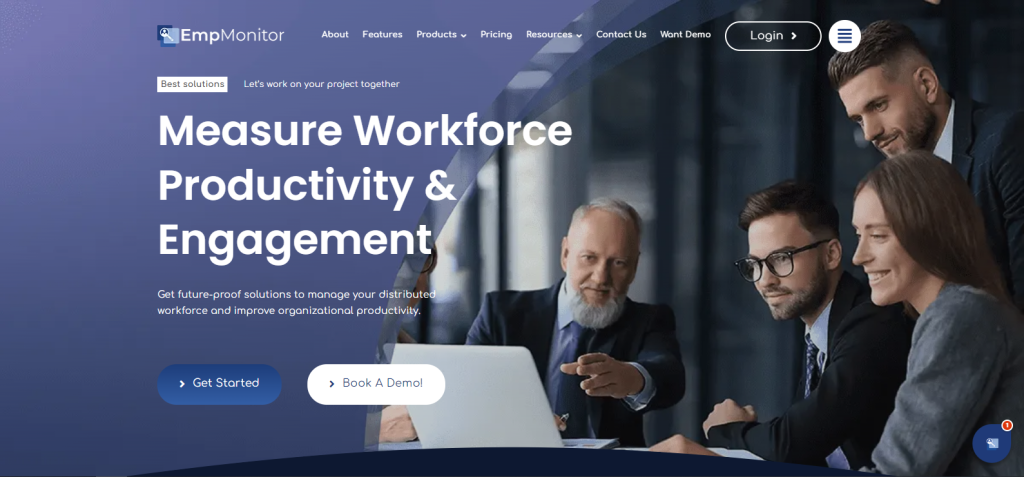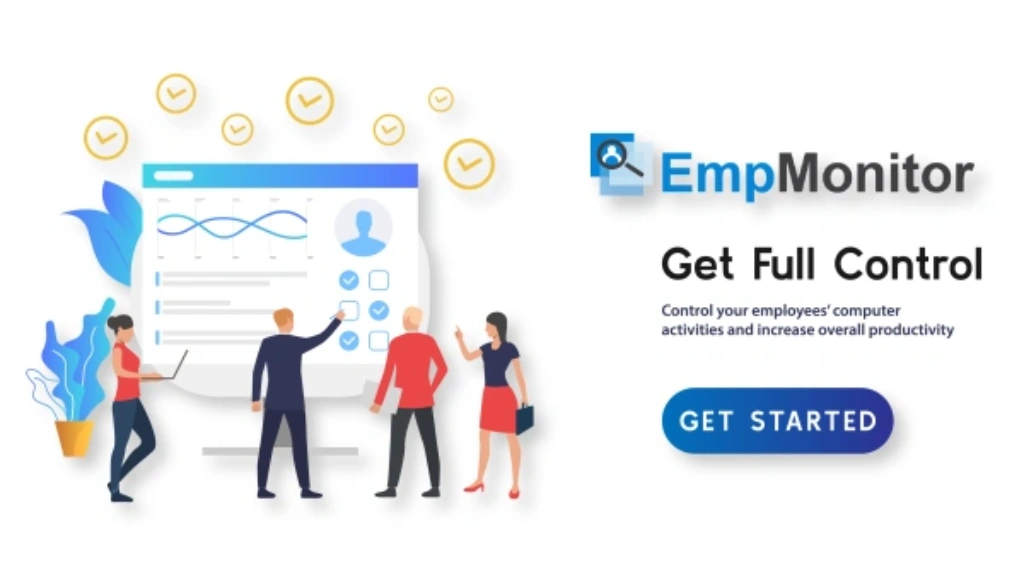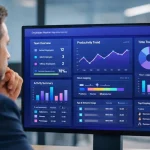Managing tasks and projects efficiently is crucial. This is where work management steps in. It Is the art of organizing workflows and workloads to ensure everyone understands their roles and meets deadlines. Work management is more than just a tool- it Is a strategy that boosts productivity, reduces delays, and enhances teamwork.
Effective work management streamlines communication and coordination, making it easier for teams to collaborate. By using this approach, managers can supervise tasks better, ensuring smooth execution and high performance in both processes and projects without clear deadlines. Unlike traditional project management, which focuses on individual deliverables, task management emphasizes the seamless integration of tasks across various projects.
In this blog, we will learn everything you need to know about work management and some implicit tips for effective work and task management. So, let us begin.
Hit ‘Play’ Button & Tune Into The Blog!
What Is Work Management?
Work management is the effective arrangement of workflows and workloads within groups or companies to guarantee that workers comprehend their responsibilities and meet deadlines. As a tool, it seeks to assist teams and individual workers in reaching higher clarity when carrying out duties and procedures. To ensure that everyone gets the information they need to operate as productively and efficiently as possible, it can enhance coordination and collaboration, cutting delays and avoiding misunderstandings.
Managers can better supervise their teams’ performance using this approach. It can be applied to a project’s execution, organization, or scope. While work and project management are similar, task management is more concerned with organizing employees’ tasks in processes or projects that lack clear deadlines. Managers can enhance a variety of variables by utilizing management tools, including project planning, task scheduling, resource management, performance evaluations, project reviews, and assessments.
Work Management vs Project Management
Why Is Work Management Important?
The advantages listed below highlight the significance of task organization:
Optimizes the Resource Allocation and Uses
Optimizing work task management can improve an organization’s resource use. It can assist in allocating resources to jobs and projects that can yield the highest returns on investments because it enhances processes and workloads. To achieve deadlines and cut expenses, staff members can also focus their time and energy on the most essential components of projects.
Improves Output and Performance
When properly implemented, operations management can assist companies in improving staff productivity and project success rates. Employee productivity rises, and job quality is enhanced when they are aware of their responsibilities. It implies that as long as resources are available, employees inside the organization can perform better and advance the business toward its objectives quickly.
Enhances Collaboration
In an organization, this management style enhances teamwork by helping everyone understand their roles in achieving the group’s goals. Collaboration becomes easier and more effective.
Measures Productivity
Work management systems allow managers to access various information on current and future projects, helping them gauge output more accurately and spot any delays. EmpMonitor stands out in this regard, assisting managers in taking proactive measures to ensure projects are completed on time. Let’s see what more it offers.
Measure Workforce Productivity with EmpMonitor
EmpMonitor is a cutting-edge workforce management software designed to streamline employee monitoring and boost productivity. By providing detailed insights through comprehensive reporting and customizable alerts, EmpMonitor empowers businesses to optimize performance, enhance accountability, and foster a more efficient work environment.
- Productivity Analysis: EmpMonitor provides comprehensive reports of workforce productivity, analyzing work patterns by measuring active and idle time. This insight helps optimize teamwork and inform strategic decisions for improved efficiency.
- Attendance and Leave Management: EmpMonitor manages employee attendance and check-ins seamlessly, offering centralized visibility into team availability. This aids in overcoming coordination challenges in virtual settings, ensuring a more organized and efficient remote work environment.
- Time Tracking: EmpMonitor tracks work hours and task allocations, offering detailed insights into daily, weekly, and monthly time usage. This tool ensures clarity on team productivity and facilitates smooth workflow management in virtual teams.
- Screenshots and Virtual Activity Monitoring: EmpMonitor captures screen snapshots periodically to visually track work progress. It also monitors keyboard and mouse activity to gauge engagement levels in virtual tasks, helping to manage productivity challenges effectively.
- Website and Application Monitoring: EmpMonitor diligently tracks websites and applications used during office hours. It allows personalized restrictions on non-work-related sites to minimize distractions and boost focus, enhancing productivity in virtual environments.
- Alerts & Notifications: EmpMonitor monitors employee activities in real-time, issuing alerts for suspicious actions to maintain a secure remote work environment and ensure compliance with organizational policies.
- Security and Compliance for Work: EmpMonitor prioritizes data privacy and compliance with work regulations, employing robust encryption to safeguard sensitive information and prevent unauthorized access or breaches.
- Customizable Reports for Work: EmpMonitor generates detailed reports tailored to specific remote work metrics and managerial needs. This customization provides deep insights into employee activities, facilitating informed decision-making and addressing work challenges effectively.
Hence, EmpMonitor aims to improve workplace efficiency, ensure compliance, and enhance overall productivity by providing detailed insights into employee activities and performance.
Improves Decision Making
With work management tools, managers may act quickly and utilize various resources and data. Supervisors can monitor modifications in multiple projects and promptly make astute decisions using data insights.
Improves Work Scheduling
Organizations can enhance work schedules by integrating work task management tips and procedures. This strategy ensures managers can match the right person to the correct position by giving them the tools to determine the regular tasks. Productivity and job effectiveness may rise as a result.
Helps in meeting the demands of clients
Project managers and human resources can operate more efficiently with this management, leading to quicker project completion and fewer delays. Meeting customer requests and completing projects on schedule and within budget can help businesses expand their company prospects and revenue streams. With teamwork project management and work management software, clients can more readily update project needs, enabling managers to act more quickly.
Key Elements For Successful Work Management
The following are components of work task management:
Resource Management: The main aim of work task management is to assign tasks to distribute and use resources more effectively and efficiently. It ensures that human and material resources are utilized to their fullest potential, minimizing waste and maximizing productivity.
Collaboration: Within an organization, these management strategies can improve teamwork between individuals, groups, and departments. Enhanced collaboration fosters a more cohesive work environment where team members can share ideas, support each other, and work towards common goals seamlessly.
Time Management: To boost output, cut down on waste, and eliminate redundancies, this management style depends on efficient time management. By prioritizing tasks and setting clear deadlines, teams can remain focused and productive, avoiding procrastination and ensuring timely project completion.
Reporting: Managers monitor and report on various variables to accomplish their management objectives. They track productivity, performance, budget execution, and other factors that might help with goal-setting and decision-making. Regular reporting provides transparency and accountability, allowing for data-driven adjustments and improvements.
Project Management: As work and task management it deals with efficient workflow and task scheduling, budget execution, and team collaboration, this form of management also includes project management. Managing projects effectively ensures alignment between all aspects, proper resource allocation, and meeting deadlines and budgets.
Task Management: This component ensures that everyone is fully aware of their responsibilities and has access to the tools they need to do them as quickly as feasible. Proper task management helps avoid overlaps, reduce confusion, and ensure every team member can work efficiently towards their assigned objectives.
Customer Relationship Management: Work management entails collaborating with clients to evaluate the caliber of output, update specifications, and guarantee that the project is completed according to plans. Maintaining open communication with clients ensures their needs and expectations are met, fostering long-term relationships and repeat business.
Who Uses Work Management?
Work management can be perfect for businesses that handle jobs without a clear structure or methodology. For these businesses, which lack a guiding framework for their non-project operations, these management tools can help them manage scope and routine duties. This kind of management offers a solid foundation for skillfully managing tasks and workflows.
Work and task management is also appropriate for organizations with multiple teams, departments, or branches working together on various projects. In addition to the project management tools, this management style, often used to monitor implementation and delivery, serves as a tool in organizations to improve resource utilization and provide better guidance.
The Work Management Process
Organizations may have slightly diverse operation management procedures, but several basic steps are universally useful for developing a successful procedure.
Identify
Finding the work that needs to be done is the first stage in the workflow management process. It involves identifying activities, projects, or tasks that support the aims and objectives of the company.
Identification also includes figuring out who the main players are, what resources are needed, and how big the task is. Organizations can facilitate efficient task management by establishing defined objectives and goals.
Plan
Making a detailed plan comes next after the task has been outlined. Planning includes establishing precise goals and objectives, laying out a strategy to reach them, and specifying each team member’s duties and responsibilities.
A well-considered strategy also has a timeframe for project completion, risk assessment, and budgeting. Planning ensures that everyone is aware of the next steps and is on the same page by providing a roadmap for the full task management process.
Schedule
The process of assigning time and resources to particular tasks within the work plan is called scheduling. To track progress, it entails setting deadlines, milestones, and timetables. Task dependencies, possible bottlenecks, and resource availability are all considered throughout the scheduling process.
Teams may better manage their time, meet deadlines, and stay on track to accomplish project goals with a well-crafted calendar.
Document
Transparency, accountability, and knowledge retention all depend on work documentation. Creating documents, reports, and records that include important details about the task being done is part of this process.
Goals for the project, updates on its status, decisions taken, and any alterations or problems that crop up are all documented. Everyone participating in the workflow management process should have access to vital information and be able to consult it as needed, which is ensured by proper documentation.
Analyze
The process of analysis is continuous throughout the workflow management cycle. It necessitates evaluating results, performance, and progress about the stated goals and objectives. Organizations can find areas for improvement, make wise decisions, and modify their strategy as needed by analyzing data and key performance indicators.
The analysis yields insightful information that can direct future workflow management initiatives, resulting in ongoing development and increased achievement of corporate objectives.
Read More:
Project Management Timeline: How To Create One & Examples
9+ Task Management Tips You Should Know This Year
Tips For Effective Work And Task Management
The following tips can help you execute a work and task management strategy successfully:
Be Transparent
To effectively implement a leadership strategy, it’s crucial to be transparent and upfront about your goals. Ensure everyone in your team knows why you are acting the way you are and why they must finish the duties you have given them by the instructions.
Provide Feedback
Ask your staff for feedback to boost output and accomplish other task management objectives. By doing this, you might find obstacles or weak points and find ways to enhance outcomes.
Trust Your Team’s Abilities
You must have faith in your team’s ability to produce results if you want to optimize the outcomes for your company. Offer direction, materials, and thoughtful planning, but let each person apply their knowledge and expertise to produce outcomes.
Promote Collaboration
Teams and employees must effectively collaborate to handle work. Establish an environment where employees are motivated to work hard and assist one another in their endeavors to increase output and efficiency.
Communicate Clear Instructions
To be effective at work, you must communicate clear task assignments and project instructions to individuals, teams, and cooperating units. Giving clear instructions allows everyone to understand their responsibilities, boost production, and encourage teamwork.
Conclusion
Work management is essential for any organization aiming to boost productivity and efficiency. It goes beyond traditional project management by providing a clear framework for managing tasks and resources across various projects. Understanding what is work management plan is helps in implementing strategies that enhance teamwork projects, improve communication, and ensure meeting deadlines. Effective workflow management ensures that all aspects of a project are aligned and running smoothly.
By integrating workflow management strategies and tools, businesses can optimize operations, meet client demands, and foster a collaborative work environment.
A tool like EmpMonitor can significantly assist in this process. EmpMonitor offers features such as task management, communication tools, file sharing, and time tracking, making it easier to manage workloads and improve team performance. Implement these practices to see tangible improvements in your team’s performance and project success.
Frequently Asked Questions
Can small businesses benefit from work management?
Yes, work and task management may help small firms a lot. It can improve task organization, boost productivity, and maximize resource use. Small teams can expand their businesses and more effectively manage their workloads with its assistance.
How can workflow management tools assist in remote work?
By offering a centralized platform for task assignment, communication, file sharing, and progress tracking, work management solutions facilitate remote work. They ensure smooth workflow management by assisting remote teams in communication and collaboration.
How does workflow management contribute to business growth?
Work and task management increases project completion rates & productivity and streamlines operations- all support business success. Businesses may expand their clientele, take on additional projects, and boost profits with effective operations management.
















